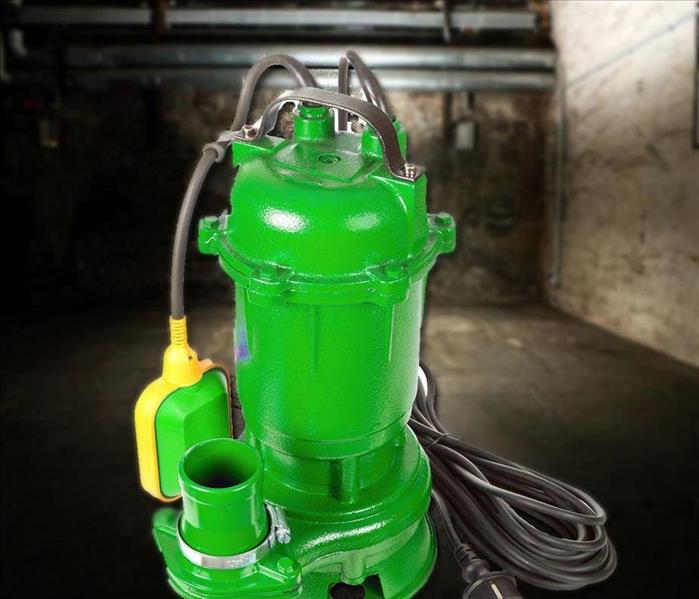Have You Checked Your Sump Pump Lately?
8/27/2020 (Permalink)
A properly functioning sump pump can be the difference between an expensive water damage and a dry basement. There are two types of sump pumps that you may have in your basement: “submersible” pumps are installed under the floor in your basements, while the “pedestal” pump sits above your sump basin. Sump pumps are used to “pump” groundwater away from your home and will evacuate large quantities of water, such as flooding and sewer backups to other areas, such as storm drains. It's important to keep your sump pump in good working order, so it can keep your basement dry all year long. To learn more about sump pump maintenance, check out these common sump pump mistakes people make.
NEGLECT
Simply put, some homeowners never even check on their sump pumps until it's too late. Many homeowners simply ignore routine maintenance and checking their sump pump system on regular intervals. It's possible you may not have a properly functioning sump pump until your basement is several inches under water.
DO IT YOURSELF INSTALL
Have you ever told yourself; "I wish I would have called a professional to do it." If you’ve never installed a sump pump, don’t risk doing it yourself. You'll end up paying a lot more for damages than for the cost of proper installation by a professional installer. Hire a plumbing professional to avoid the risks of faulty installation.
NO BACKUP POWER
During a storm or utility company power outage, your home can lose power, causing your sump pump to shut down. Should you experience flooding in your basement, a sump pump would redirect any incoming water. Keep your sump pump working during a power outage by connecting it to a backup power source, such as a generator or battery backup system.
IGNORING THE DISCHARGE PIPE/FLOAT SWITCH
Check that the drainage pipes are tightly connected and are directed away from your home’s foundation. Also, inspect the pipe for damage and clogs. Seek help at once if you find clogs or damage. Anything that impedes the flow could result in basement flooding due to slow drainage or no drainage at all.
The float switch tells the sump pump motor to stop once the water level goes below the float. Your sump pump needs ample space around the float to both float and sink freely. This should be inspected on a routine basis.
ROUTINE MAINTENANCE
Routine sump pump maintenance goes a long way in guarding against basement flooding. Schedule a thorough inspection with a septic tank maintenance professional or plumber twice a year. For professional water damage restoration or mold removal, contact SERVPRO of St. Louis Central.






 24/7 Emergency Service
24/7 Emergency Service
